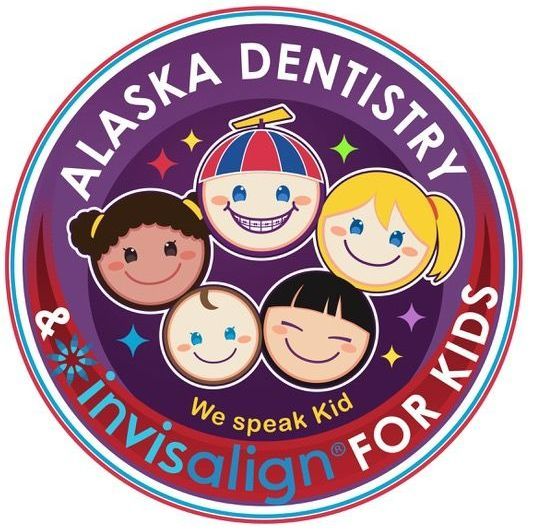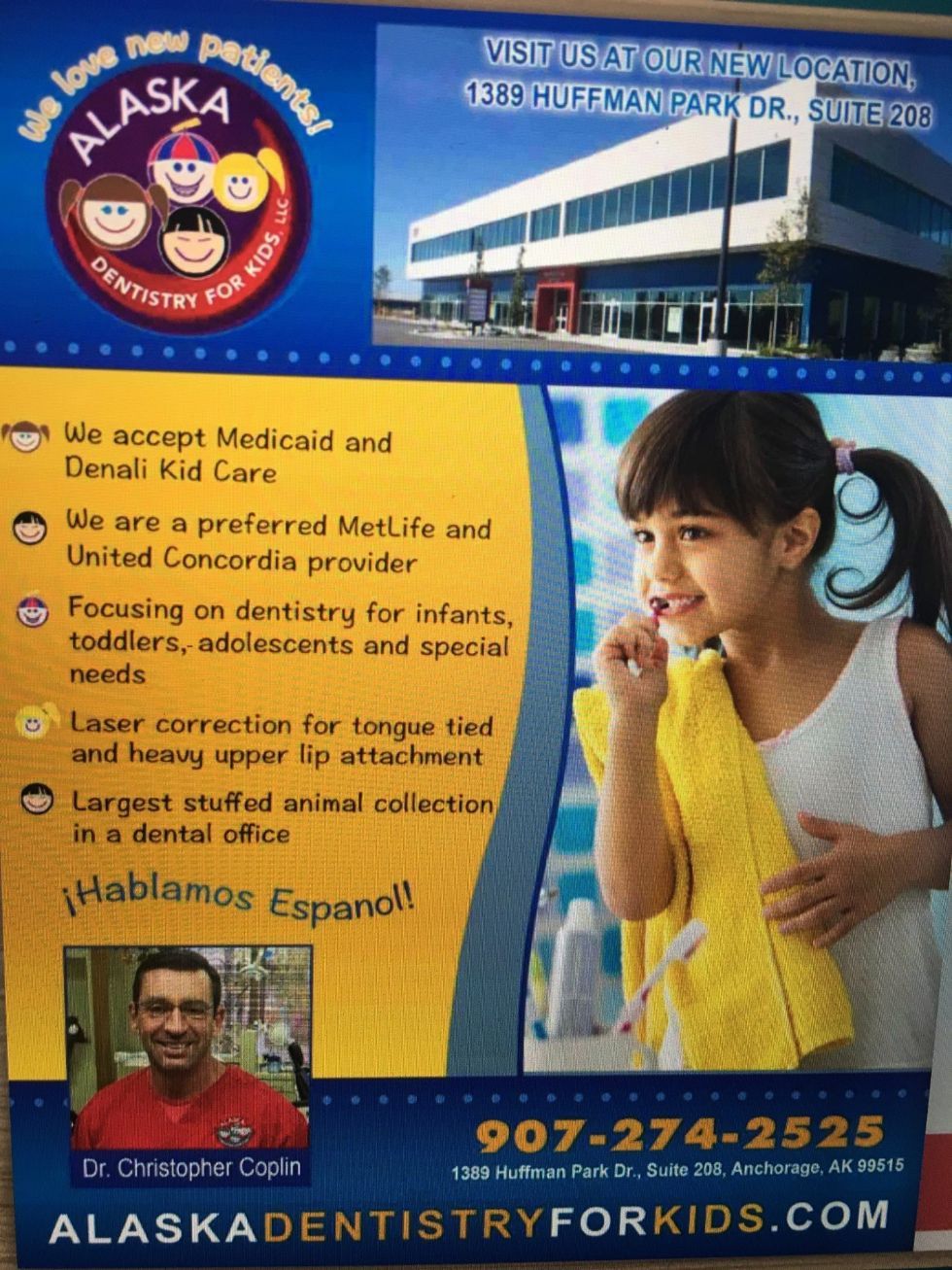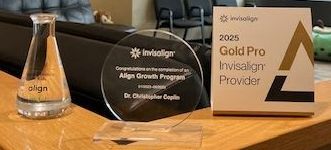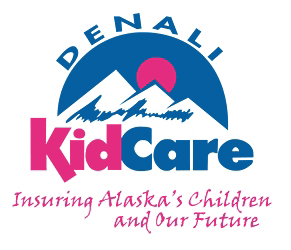Resources for Children's Dentistry
-
Are pacifiers OK?
Absolutely, but use your best judgement and research concerns you may have. Look for an Orthodontically designed pacifier. If you have questions bring your baby or child in for a happy visit or if you’ve been referred to us by a lactation consultant.
Call us at Alaska Dentistry for kids.
-
I know there are many wives tales about the negative effects of pacifiers. Tell us a bit about this?
Nipple confusion for nursing is a talked about topic and it’s suggested using a pacifier should be used minimally until the age of 4-6 weeks old. What IS known is, that use of a proper orthodontically designed pacifier can actually support and promote healthy breast feeding.
-
Dr Coplin, I have heard another myth that a pacifier will cause crooked teeth
Yes, a common Myth is pacifiers could cause crooked teeth and the reality around this is that if a child sucks on their fingers vs using a pacifier, when it comes time to weaning the child off the pacifier, you can throw it away vs their fingers are hard to wean them off of and can cause eruption problems
-
When It comes to pacifiers, is it ok to give my baby a pacifier when they get fussy and what are the risks for their teeth or development in doing this?
Pacifiers can be a live saver, however the debate of whether or not they are good for your baby is always going to be there because of nursing confusion, teeth formation/alignment, & teeth development
-
What options does a parent have for their child to feel comfortable at the Dentist, if they’re really little and need a lot of dental treatment?
As a parent, you have choices about your child’s comfort. Why create a difficult experience at the dentist? Instead, plan for a fun and comfortable visit that your child remembers as a positive experience in getting a healthy smile with an awesome prize or stickers at the end of the visit.
-
What are the difference between nitrous and a liquid medication they drink and what should I know to decide what’s best for my child?
Nitrous oxide is breathed through a little mask the correct size for a child and helps them to relax and feel sleepy. Liquid sedation medication is taken while the child and parent are in the office and we are able to observe your child getting sleepy, once they start getting sleepy, they leave the play area and lay back in the dental chair ready for treatment with Mom/Dad in the room to be by their side while they sleep for a short visit.
-
What does a child typically remember about the dental visit after having nitrous or the liquid medication?
Most children only remember having fun playing in our reception area, drinking the medication that tastes like oranges or grape juice and then getting sleepy. They don’t remember much else after the treatment is complete, Mom/Dad will stay with them until they feel ready to get up and walk with them to the car to go home. The great thing about this is that the child doesn’t have to come back several times in most cases and the decay or dark spots in their teeth are fixed and they can keep their smile in place. This is just as important for kids as it is for adults.
-
How do I know my child will be safe and this (sedation) will work for them?
You’ll be staying with your child during their visit and watching them get sleepy and you are welcome to hold their hand or be by their side while they relax and get the dental treatment done that they need.
Not every child needs sedation or relaxation aids. Many love coming to the dentist and look forward to seeing us every 6 months to get their teeth cleaned and polished.
Call us today to so we can be part of your child’s comfortable dental experience!
-
Now that Kids are back to school, what are concerns you hear from parents with kids with special needs?
Kids in a wheel chair or challenges with dexterity need help in caring for their teeth.
I have parents who are concerned about their child and if they will sit long enough for us to look at their teeth. I just had a Mom who was so concerned about her child and wanted her son’s teeth looked at. A dentist was referring the child to be sedated in the hospital to look at their child’s teeth. Mom brought her son to our office for a second opinion and we tried to look at the childs teeth, and the he sat still and was an angel. He had no cavities and Mom was so grateful she didn’t have to have her child sedated.
-
What tips do you have for parents to teach their child healthy foods to eat and pack for their school lunch?
Pinterest has so many great ideas for healthy lunches and especially fruits and vegetables cut in fun shapes and anything you can make together. Peanut butter is great protein for dipping apples into. Frozen bananas with peanut butter and nuts is a delicious treat.
-
What kind of drinks should parents help their child choose for their school lunch that will keep their teeth healthy?
This is a hard question, because there are so many drink choices. Take a look at the sugar content of each drink and you will be surprised how much sugar is in most drinks. Water is always the best for their teeth and the next best is something with less than 10 grams of sugar
-
How does a parent of a special needs child help their child keep their teeth clean?
They can play a game with their child and give them rewards when they accomplish hard things, they can also use a soft cloth to brush off the plaque on their teeth the best they can tolerate. Using a toothbrush is best if the child can do it themselves. If they can’t you will need to brush their teeth for them at least twice a day. Make it fun!
-
Dr Coplin, with Summer coming to a close and school starting, what do you experience with dental emergencies in your office and how do parents know when their child has a dental emergency and they should bring them in right away?
We usually see kids who have a tooth chipped, broken, or a bleeding lip from a fall more often because they are out on bikes, hiking and playing outside more in the summer.
-
I’ve heard of a child that had a front tooth knocked out on a playground, what should a parent do if that happens?
They can put it back in the child's mouth right away or place it in milk and bring the child into our office to have it taken care of. Sometimes, if a tooth is put right back in the socket, it will stay in place and take hold back in the mouth again.
-
How do I know when my child who has special needs or is too little to tell me if they are in pain with a toothache?
Take a look at your childs teeth every day to see how they brushed and to see where they leave plaque. Let them do their best so they can practice brushing and then take a look to see where they need help. Let them look into a mirror while you show them how. You can see their teeth and they might be in pain if they have black areas of their teeth (possible decay), If their tooth is broken and you can see the circle nerve, If they bumped the tooth recently and it hurts to chew on it.
-
4) What do I do to prevent a dental emergency for my child?
Preventing dental emergencies require parents to be diligent in getting their child to the dentist regularly for preventive care. We recommend children be seen at least every 6 months to get their teeth cleaned. Regular teeth cleanings and immediate care of decay while it’s small, are the most cost effective ways to stay ahead of tooth decay and disease.
-
My child is 9 years old and her new permanent teeth have a yellowish tint to them. I make sure she brushes and she even uses whitening toothpaste sometimes. Is there something wrong or something else we can/should be doing?
This question is one that is often asked in my office, and the answer, the majority of the time, is quite simple. Now, there are many causes of dark or yellow teeth in children. Discoloration can be caused by poor oral hygiene (i.e., lack of brushing), infections or certain medications. A prolonged illness that induced a high fever also can affect the color of teeth. However, in healthy teeth, the teeth that appear more yellow are generally normal and are expected. Primary teeth, or baby teeth, also when healthy, are bright white in color. Hence the nickname “milk teeth.” When our permanent teeth make their appearance right beside those glowing white baby teeth, the difference in color or appearance can be very alarming.
Again, in most cases, there is nothing to worry about. Our teeth, both baby and permanent, have three layers to them: Enamel (the outer, visible, layer); Dentin (the middle layer); and Cementum (the innermost layer). In each of these layers, there are three things that are different in comparison to baby teeth. In permanent teeth, the enamel is more transparent, the dentin, which is naturally dark grey/yellowish in color, is much thicker and darker, and the dentin is surrounding a very large pulp (i.e., the blood supply), to a still growing and developing tooth. So, starting in the middle of the tooth, with a larger, deep, red pulp, followed by a much larger, thicker, grey/yellow in color, dentin then cover it all in a more transparent enamel and there you have it: A permanent tooth that appears darker and more yellow in color – very normal. As more of the permanent teeth start to come in, you can re-evaluate the color and see then how they look. My bet is that the color will not appear nearly as grey/yellow as they first did when next to the baby teeth. If they do, this, too, can be very normal for your child. Once your child is older, preferably young adulthood, whitening toothpaste and possibly whitening agents can be considered. However, if you do feel that your child’s teeth, permanent or baby, are darker than normal, you may want to schedule an appointment with your child’s dentist just to be sure.
-
Is it ok to give my baby a pacifier when he gets fussy? If so, is there a better type over another? If not, what are the risks in doing so?
To a mother, especially a new one, a pacifier can be the difference between complete joy and a trip down insanity lane. Pacifiers are, without a doubt, a life saver. However, the debate of whether or not they are good for your baby (i.e., nursing confusion, jaw growth, teeth growth/formation/aligment, etc.( is always going to be there. Bottom line, pacifiers are absolutely ok for your fussy baby - to a point.
There are many "wives tales" out there surrounding the negative side of pacifiers. I will touch on two of the most popular and hope to put some of your concerns at ease.
Nipple confusion. Myth. If you are nursing, it has been suggested that pacifiers should be used minimally until the age of 4-6 weeks old. The jury is still out on that, but what is known is that the use of a proper, orthodontically designed pacifier can actually support and promote healthy, proper breastfeeding.
Crooked teeth/jaw misalignment. Myth. Again, using on e that is orthodontiaally designed, a pacifier can actually help with tooth alignment and jaw growth. It is suggested, however, that by the age of 18-24 months, when most, or all, baby teeth are in the mouth , that the pacifier be limited as much as possible, if not stopped all together. Consider this: Thumb and finger suckers do more damage to the developing teeth and jaws (crooked/misalignment) than pacifiers ever could. pacifiers can be thrown in the trash if weaning needs to be instant. Thumbs and fingers are there for life - especially at 2 am when you're not there to stop it.
So, are pacifiers ok? Absolutely. But use your best judgement and research any concerns you may still have. Is there a better type over another. Absolutely. Always look for an orthodontically designed one. Are there risks in using a pacifier? Some. When using a pacifier, as with everything in life, there are "cons." None of which are strong enough that it should deter you from using one.
Again, these are only two of the many different topics surrounding pacifiers. If you still have questions about the pros and cons of using a pacifier, consult with your child's dentist or pediatrician. I'm sure they would be more than happy to help.






